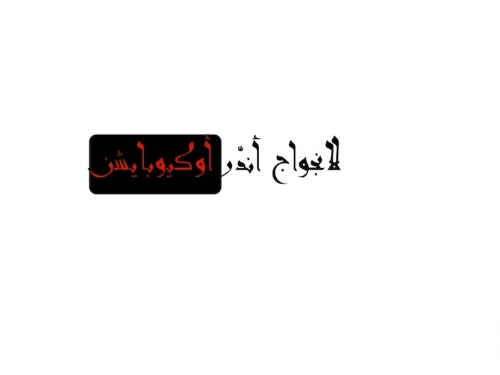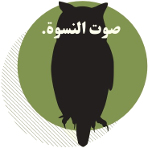
Nazareth- Palestine
On Saturday, the last day of September, it rained over Nazareth. They say in Arabic “أيلول بطرفه مبلول”, “September is wet at its edge” and regardless of the climate changes experts tell us about, it did rain just like the old saying goes. The rain was light, but strong enough to rush my brother and I out to collect the hanging laundry on roof’s ropes. My neighbours were also rushing out to do the same. It was the first rain; it was light brown. The first rain always comes with dust, as if pushing the sand and dust in the air into earth.
And as in every Saturday, my grandmother comes over to my family’s house for lunch. As always, she sits in our living room and talks about her bodily pains, the medicine she takes, what the doctor told her and when her next appointments are. Then she would say: “I was strong; I built houses for my sons; I would carry the sand on my back for the construction workers, I was strong”.
That day, an urge inside me told me to record her as she remembered her past. It was something I had always wanted to do it but never did. That day, the feeling was strong. It was that fear that our grandmothers will take all these stories with them when they move to another world. So as I peeled potatoes for lunch, I asked her if she could tell me stories from her past about our village, nearby Nazareth. And I turned the voice recorder on. Later, of course she wanted to hear the recordings and while listening to it she would comment on her own voice reaffirming what she said in the recording.
I did not know what to expect when I turned on the voice recorder and asked: “Teta, tell me about the weddings you remember from the old days”.
And she said: “we would gather wood for the fire that would burn to heat food”. She did not elaborate much more. She wanted to go right to the songs. “They would “hold” (بصمدو) the bride still on a couch. Women would gather in front of the bride, but they would not dance.” They would have to be pulled to dance by the host. “Not like today, all women rush to dance at the same time. In the past, they would not accept to dance, since they have to be invited by the host.”
Then the singing starts. Teta told me that for each woman there is different song reflecting her position in social life. For the freshly married woman they would sing:
آي يا اول حضورك
آي يا شمعة ع طولك
آي ويا هو جايكي عريس
آي نيجي نزورك
While no translation can bring the heart of the poetry in those songs and the context or the sighs of the souls they dwell in, I nonetheless, decided to be unfair and translate them. This kind of translation feels like a slight violation, and it should always be accompanied by an apology that acknowledges the imperfection as a necessary element of it.
Ayee your first presence
Ayee a candle as tall as you [you’re a candle]
Aye when you birth the groom [son]
Aye we will come to visit you
Teta then told me that “fist presence” means the “first pregnancy”.
And she shared more songs about the social status of the woman who dances. “So for the married woman who has children, they would sing a song praising her husband:
آي يا الك عز من هيبته يمشي مع الحكام
آي يا مرخي ردانه متل الترك لقدام
آي يا يوم إنكشف عن جبينه شاشة العربان
آي يا صحة وعوافي يا الي ماسك الفنجان
Ayee be praised, with his pride he walks with leaders
Ayee he who wears his gown like a Turk [a marker of prestige, refers to the Ottomans who ruled these lands]
Ayee on his forehead a marker of greatness [or Arab nobility]
Ayee health and strength to those who drink [Coffee, or could be Araq]
I wish I brought my notebook, Teta sighed. I have written all of these songs down. Maybe it was that I wanted to disassociate myself from my own present that day, but I just wanted to hear anything she remembered from her past. So I told her I wanted to hear anything she remembered. And she went on singing:
عديدو المهرا وهاتو البارودة
عديدو المهرا وهاتو البارودة
زفولي “فلان” لباب العقودة
عديدو المهرا وهاتو الشبرية
زفولي “فلان” لباب العلية
Prepare the horse and bring the rifle
Prepare the horse and bring the rifle
Dance for “Name of Person” to the door of the house
Prepare the horse and bring the dagger
Dance for “Name” to the door of the room
With the same breath she continued:
يا يما ما أحلى الزفة وولاد عمي قدامي
“فلان” يمسك الفرس و “علان” يرقص قدامي
يا يما ما أحلى الزفة وولاد عمي قدامي
Oh mother how beautiful is the wedding with my cousins in front of me
“name A” holds the horse and “name B” dances in front of me
Oh mother how beautiful is the wedding with my cousins in front of me
During weddings, she said, the bride’s and the groom’s families would compete in singing poetic verses that boast about their side of the family. Sometimes these singing competitions would create a lot of tension between the families.
A woman from the groom’s family would sing:
اي يا عروستنا لاتعبسي
أي يا عريسنا أحسن وأحسن
أي يا سالفك ها الرومي
أي يا تحت شاربه ها الأشقر
Ayee Oh bride do not frown
Ayee our groom is the best
Ayee you will be related to the Byzantine [also Greek Orthodox]
Ayee beneath his blond mustache [sing of foreign status]
I asked my grandmother who is this “Roumi”–Byzantine–? This is what they used to sing, she replied, but did not really answer my question! My mother, who was Greek Catholic before her marriage, yelled from the kitchen with a cynical voice: “Of course they mean Greek Orthodox, they always like to praise themselves.” The conversation ended there. But Teta always argued that “in the beginning all Christians were Greek Orthodox, until fragmentation happened in the church”. She would then brag about the fact that the Greek Orthodox Church owns so much land in Palestine.
Teta’s story continued. “The bride’s family would then respond”, complementing the bride:
آي يا عريس عريس لا تندم على المال
آي يا عروستك حواجب قوس محنيه
آي يا تسوا بنات عمك ميه على ميه
Ayee Oh Groom do not regret the money
Ayee Your bride’s eyebrows bended arc
Ayee She is more worth than your cousins [female cousins]
They also sang other songs, she told me:
يا بيّ “فلان” ع الساحة ضيوف كتار
إدبح دبايح وهيّل الرز بالقنطار
خيّنا يا العريس هيّل فراش العال
ساحة كبيرة وكل ضيوفها شعّار
Oh “Name of Person” the yard is full of guests
Slaughter the sacrifice and pour a lot of rice
Groom, brother, prepare the fancy place
The yard is big and our guests are all poets.
She kept singing:
جيت أغني متلي ما حدا غنى
متل الطير بالبستان غنى
ريتك يا “فلان” بهالعروس تتهنى
أخدت بنت الأصايل
وخليت الغير يستنى
I came to sing like no one else did
Like a bird in the garden singing
I wish you “name” joy with your bride
You found the best and kept the rest waiting [for their time to find a bride]
A woman singing for her son, her brothers or male cousin:
يا بيّ “فلان” وإحنا اليوم بحيّك
يا ورد جوري كل الناس بفيّك
طلبت من رب السما يرحم عيون بيّك
ويوفق الدهر بينك وبين خيّك
Oh “name” today we’re in your neighbourhood
Oh Damascus Rose all people in your shade
I asked god mercy on your father’s eyes
May destiny brings peace between you and your brother
I finished peeling the potatoes and gave them to my mother in the kitchen. I sat next to Teta and asked her what about funerals, what would you do? They are not like today, she said. Women today say some prayers, in the past women would mourn with lament singing that sounds like loud crying, نواح- nouwa7. She told me that her mother would do it in funerals. Then she sighed, “khalas, let’s finish here, stop the recording.”
But I know that I saw a silent sadness in her eyes when I asked her about funerals; she too, with her complains about losing her sight gradually, fears the present as if there was no future.
Publisher:
Section:
Category:






